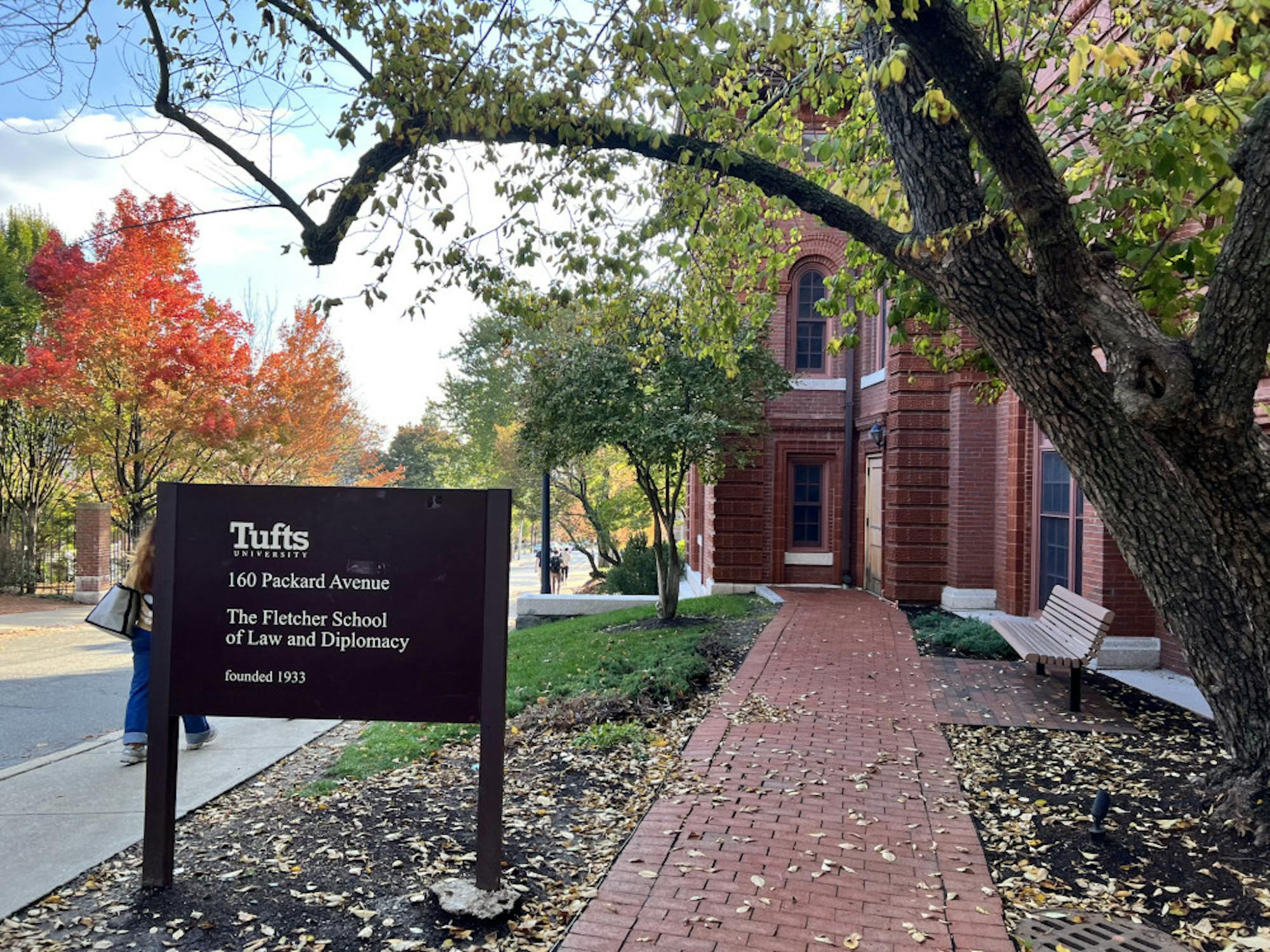The Fletcher School hosted the “Rising Power Coalitions: Reimagining Global Governance”conference on Dec. 1 and 2, a series of discussions that covered themes such as changing power dynamics, foreign policy and new challenges in international affairs.
The Rising Power Alliancesproject is a multi-year project that analyzes the shifting of alliances and coalitions in global governance, with a special focus on the bloc of emerging powers called BRICS, an acronym that refers to its members: Brazil, Russia, India, China and South Africa. Project investigators, Academic Dean Kelly Sims Gallagher and Professor Mihaela Papa, hosted the conference under their Minerva Research Initiative award issued by the Office of Naval Research.
Ashutosh Patil, a research assistant for the project and first-year Master of Arts in Law and Diplomacy student, elaborated.
“The entire concept includes projects on a variety of topics, for example, on sustainable development, climate change, on de-dollarization, in terms of having another alternative reserve currency, on reform of the multilateral trading system and reform of the UN,” Patil told the Daily.
Patil also offered insights into the thought process behind the conference and its themes.
“We wanted representation from all the BRICS countries. … Most of the speakers — the panel — were folks from academia and folks who have previously been postdoc fellows, who have worked in the Rising Power analysis project and also folks who are extensively working on issues which are specific to BRICS and the rising powers,” he said.
The conference began with a keynote address from the former Ambassador of Chile to China, India and South Africa and Boston University Research Professor Jorge Heine. In his speech, Heine emphasized the importance of BRICS in today’s world and how its rise and current influence have disproved early notions of its supposed irrelevance. He went on to discuss shifting trade patterns, economic growth in the developing world and the concept of the expansion of membership to BRICS.
Heine also highlighted the issue of insufficient representation of emerging powers in institutions of global governance such as the International Monetary Fund and World Bank, noticing a shift in the global shift decision-making process.
Akshay Mathur, a senior fellow at the Centre for International Governance Innovation, sat on Panel 2: The BRICS group and Eurasian Integrations Process and spoke about the role of minilaterals, such as BRICS; larger multilaterals, such as the United Nations; and global governance in general.
Mathur discussed his thoughts on reforming BRICS and reiterated the need for greater representation in international institutions.
“It’s not easy, because … there are countries that hold power … and reform will necessarily require some of these countries to give up some of those powers,” Mathur said. “It is also a matter of who funds the change, and, how do we fund some of the global ambitions that these multilaterals have? So there are a lot of considerations, none of which can be simplified.”
Mathur also shared his views on the future of BRICS, how it has begun to focus on more strategic issues by organizing groups like the Anti-Terrorism Working Group, as well as annual meetings of high representatives of national security from the five member nations.
“In light of what is happening between Russia and Ukraine and … may very well happen in, say, the Taiwan Straits or what may happen in South Asia, I think it’s important that these countries are in alignment and understand each other on the different compulsions and challenges that are emerging in the strategic space,” he said.
Mathur added that it may be more beneficial for BRICS’ agenda to discuss strategic issues.
Patil weighed in on the future of the Rising Power Alliances project within the context of changing internal and external dynamics such as a “post-Covid” world, the Russia-Ukraine war and the rapid rise of climate change.
Citing the recent India-China faceoff in the Galwan Valley, he discussed how, despite such border conflicts, Indian Prime Minister Narendra Modi and Chinese Premier Xi Jinping kept their bilateral differences aside and came together for the 14th BRICS Summit in China, highlighting it as their recognition of the need for broader cooperation.
“The developing world is still at a level where they are developing. … The economy is rising, there’s a major population to cater to and they can have one voice for that. They can put forward their issues and also call for the developed world, in terms of, let’s say, climate finance … to contribute their share equally,” Patil said. “So, I think in terms of themes and in terms of certain, you know, challenges which we are going to face, BRICS will be very relevant.”
Mathur emphasized the need for more research on the role BRICS and other laterals play in international affairs.
“It is very important to track the influence of laterals on world affairs and in which areas they’re being able to make changes,” Mathur said. “It could be a change in international standards [or] changing international regulations.”
Patil added that the conference served as a space to hear and engage with diverse opinions.
“For the very first time, I think the fact that we had a conference on rising powers specifically in the real world … not just BRICS, but the rising powers of the emerging economies is a significant first step,” Patil said. “But I think … we have to build on it … so that we can have more students who could develop an interest in this particular subject, who can write articles, be a part of research projects … and to add to the entire discourse on the role of these emerging economies in global political governance structures.”
Editor's note: A previous version of this article omitted the role of the Office of Naval research. The article has been updated to acknowledge grant sponsorship.






